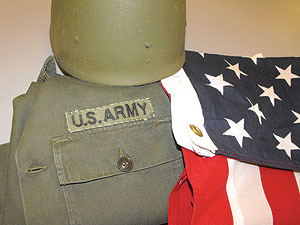
Eagle Feathers #14 – Day of Infamy
By Bob (Monty) Doherty
On December 7, 1941, the Empire of Japan attacked the American fleet at Pearl Harbor, Hawaii, launching America into World War II, the most devastatingly destructive conflict in our planet’s history. The next day, the American Congress declared war upon Japan, immediately followed by an additional declaration of war upon Germany on December 9.

Twenty-four days later, Somerville’s centennial year (1842-1942) began. The events of the attack, however, ensured that a celebration of the city’s one hundred years of existence would never actually take place. Plans for the festival were cast aside and instead, as with every other American city and town, Somerville underwent an abrupt transformation from a peaceful place into one that concentrated almost fully on the war effort.
The overnight reality of the attack on Pearl Harbor changed Somerville’s businesses into factories that seamlessly produced the products and resources that were so paramount to victory. Assembly Square went from making automobiles to universal carriers, which were about half the size of a tank and carried troops, as well as supplies.
In Union Square, furniture companies stopped making furniture and began to make airplane glider fabrications. Squire’s meat packing establishment started shipping its products to the military. It was the apex of patriotism. Thousands of workers left the assembly lines to join the armed forces. Even the honorable John M. Lynch, who was the sitting mayor of Somerville at that time, resigned to join the Navy, where he served his country as a Lieutenant Commander.
The war changed the entire demeanor of the American workforce. The departure of so many workers left an immense vacuum. Much of the void was filled by women who volunteered to fill the empty roles left by those who had been deployed. Somerville’s municipal defense was bolstered largely by volunteers for air-raid wardens and fire and police auxiliaries. Possible enemy targets such as the Ford plant and railroad bridges throughout the city had to be strictly guarded.
In order to conserve as many resources as possible for the war effort, rationing was imposed. Sacrifices had to be made by Somerville citizens on a daily basis, with many of them working extremely long and arduous hours. Red Cross classes were given and first-aid stations were set up. Citywide air-raid sirens were mounted and evacuation plans were made in the event of a worst-case scenario. Residents denied themselves abundant use of everyday items that objects of luxury.
So, while Somerville may not have honored the city’s one hundredth birthday with a bash in 1942, it did something much more honorable than throw a party. It made an immense contribution to ensuring the freedoms that we, as Americans, hold so dear. Next week marks the 71st anniversary of the Pearl Harbor bombing. So if you get a chance, take a moment out of your day to remember the thousands who served, the many who were injured and, above all, the 409 Somerville souls who gave their lives in the war that began that Sunday morning.












Reader Comments